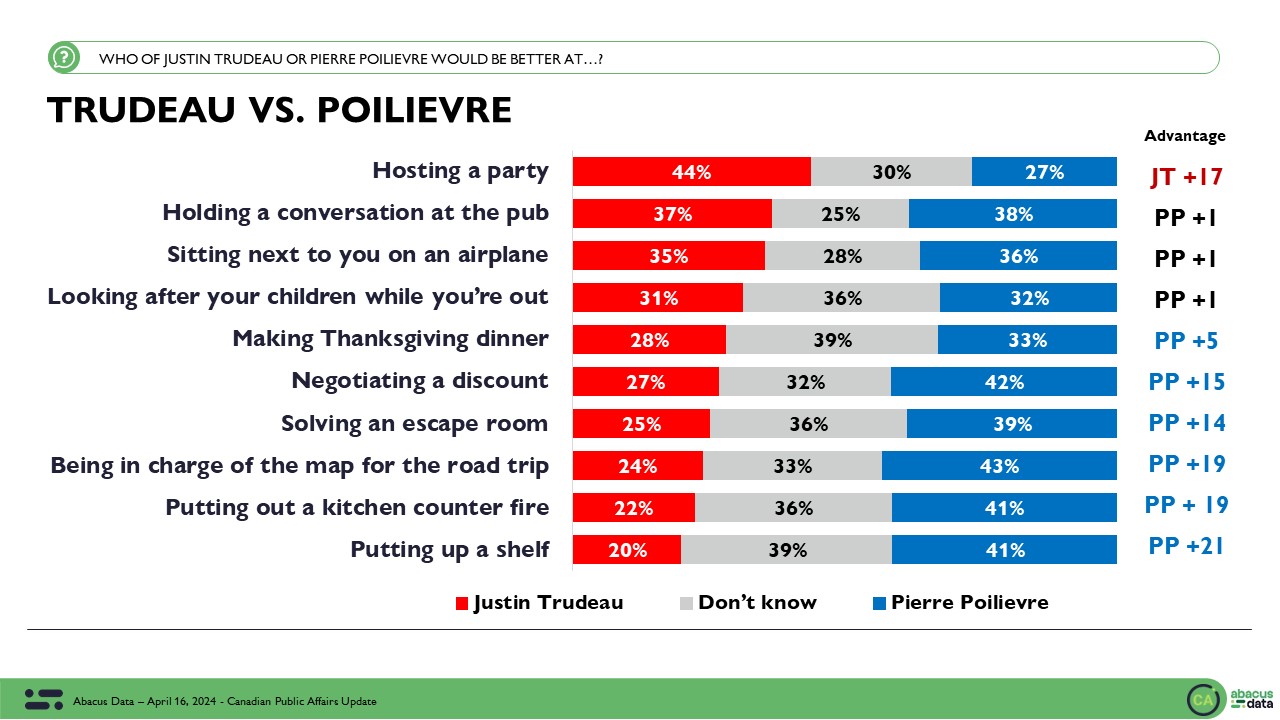Floods caused by climate change, say most Canadians
June 9, 2017
Canada has been facing experience significant floods in recent years, with corresponding increases in the relief costs borne by governments, and rising financial pressures on insurers and the insured.
In our latest poll, we asked whether people felt this type of weather related emergency is caused by climate change.
Three out of four (76%) people think it’s likely or certain than that climate change is the cause, compared to only 24% who doubt that fact. Alberta is the least convinced province, but even there, 58% believe these disasters are related to climate change.
Liberal voters are most convinced of the connection, at 87%, followed by NDP voters (82%). Conservative voters are split: 53% believe climate change is involved, 48% think it unlikely.

The belief that these floods are caused by climate change has a direct and clear relationship with how people feel about the value of the Paris Climate Accord:
• Those who think the floods are caused by climate change are 93% in favour of Canada staying in the Paris Accord.
• Event those who think the relationship is “unlikely” are mostly (73%) of the view that Canada should remain committed to Paris.
• Only the smaller group who feel climate change is “very unlikely” or “certainly not” responsible for these events believe Canada should exit the Paris Accord.

UPSHOT
According to Bruce Anderson: “Most Canadians support taking more action on climate change and do so for a variety of reasons.
Many feel a moral imperative to do right by future generations. Plenty feel there is an economic opportunity in making a transition to a cleaner energy economy.
However, many Canadians have also come to believe that the risks and costs of climate change are being felt today – and are not just problems that might happen, some years down the road.
This is changing the political math surrounding the climate change issue.
It’s harder for opponents of climate action to make the case that doing more is unaffordable when people see real and mounting costs associated with the climate problem already.
At the same time, advocates of action can make the case that costs are already rising quickly, and action is financially prudent, not risky. For some, rising insurance or clean up costs may seem more disruptive than pricing carbon.”
METHODOLOGY
Our survey was conducted online with 1,518 Canadians aged 18 and over from June 2 to 5, 2017. A random sample of panelists was invited to complete the survey from a large representative panel of over 500,000 Canadians.
The Marketing Research and Intelligence Association policy limits statements about margins of sampling error for most online surveys. The margin of error for a comparable probability-based random sample of 1,518 is +/- 2.6%, 19 times out of 20.
The data were weighted according to census data to ensure that the sample matched Canada’s population according to age, gender, educational attainment, and region. Totals may not add up to 100 due to rounding.
ABACUS DATA INC.
We offer global research capacity with a strong focus on customer service, attention to detail and value-added insight. Our team combines the experience of our Chairman Bruce Anderson, one of Canada’s leading research executives for two decades, with the energy, creativity and research expertise of CEO David Coletto, Ph.D.




